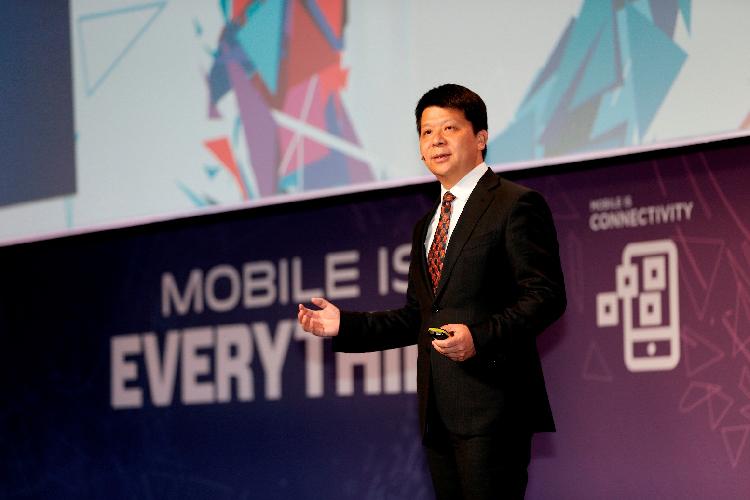
Huawei Opening up Massive Commercial Use of 4.5G & 5G Broadband, the Backbone of a Digital Economy
This past week’s Mobile World Congress saw Huawei and other heavyweights from the mobile industry lay the foundation for wider commercial use of 4.5G & 5G broadband—considered the backbone of today’s digital economy.
Huawei Deputy Chairman and Rotating CEO Guo Ping has noted that industry players must ensure they do not miss out these opportunities in the coming five years. Guo said that three things should be done before 5G arrives: increase connectivity, enable verticals, and redefine network capabilities. These initiatives will help address the uncertainties brought about by new technologies and new business models.
To that end, over 300 leading telecom operators, analysts and enterprises attended the recent 4.5G Industry Summit to analyze pre-commercial deployments of mobile broadband. For its part, Huawei extended global open partnerships on 5G technologies with more than 20 operators, including Etisalat, Vodafone, Telefonica, TeliaSonera and more.
On the regional level, Ooredoo has now teamed up with Huawei to open a next-generation Innovations Lab in Qatar to pioneer broadband solutions and infrastructure. Saudi operator Mobily has further announced plans to optimize its network performance and investments through a network managed services agreement with Huawei over the next five years. In Oman, Omantel is enhancing and expanding its mobile broadband coverage by delivering the Sultanate’s first Smart Street Lamppost solution together with Huawei.
A greater emphasis on openness and collaboration has been crucial to the maturation of broadband technologies at the start of 2016. This includes strengthened ties between global telecom operators, leaders of industry, product designers, and application developers. In a fully connected era, the ability to seamlessly combine expertise from these different sectors has led to a new industrial revolution—increasingly known as ‘Industry 4.0’—which Huawei believes has the potential to reorder the global economy impacting the way that people learn, work and live.
“Changes in the ICT industry are the main driving force behind business development in the digital era. As a key enabler in the ICT industry, Huawei is committed to helping the telecom industry and vertical industries digitize their infrastructure, operational systems and business models with state-of-the-art technology,” said Zou Zhilei, President of Carrier Business Group, Huawei.
This past week the company also unveiled its five ‘Big Initiatives’ for the telecom industry to accelerate its digital transformation. Huawei describes the five initiatives as Big Video – Everywhere, Big IT – Enabling, Big Operation – Agile, Big Architecture – Elastic, and Big Pipe – Ubiquitous. The initiatives represent new opportunities for telecom operators in the Middle East and worldwide, foreseeing a potential $100 billion video industry market, a $1 trillion enterprise cloud market, and the number of IoT connections expected to grow 10-fold.
City planners are placing particular emphasis on using ICT to develop safer urban communities. According to Huawei, safe city development has now shifted from an incubation period focused on video surveillance to a rapid-growth stage embracing comprehensive public safety management. This includes building multidimensional and intelligent security systems featuring awareness, visualization, and collaboration—helping governments improve crisis prevention and emergency handling capabilities while reducing crime rates.
Tapping into the potential of more powerful mobile networks, consumers also got a glimpse this past week of Huawei’s new flagship device the Huawei MateBook—a 2-in-1 gadget designed to meet the evolving demands of today’s modern business users. Building on Huawei’s success in delivering powerful high-end mobile consumer devices, the MateBook defines itself as a mobile productivity tool that seamlessly integrates mobility, high efficiency, work and entertainment.
According to forecasts, by 2025 there will be four billion new broadband users worldwide, more than 100 billion things will be digitally connected, and every person's consumption of data will increase more than 500-fold. Huawei’s continued investments in ICT innovation are aimed at creating value from this digital transformation, with the company recently ranking on Fast Company’s annual list of the world’s 50 Most Innovative companies.


























